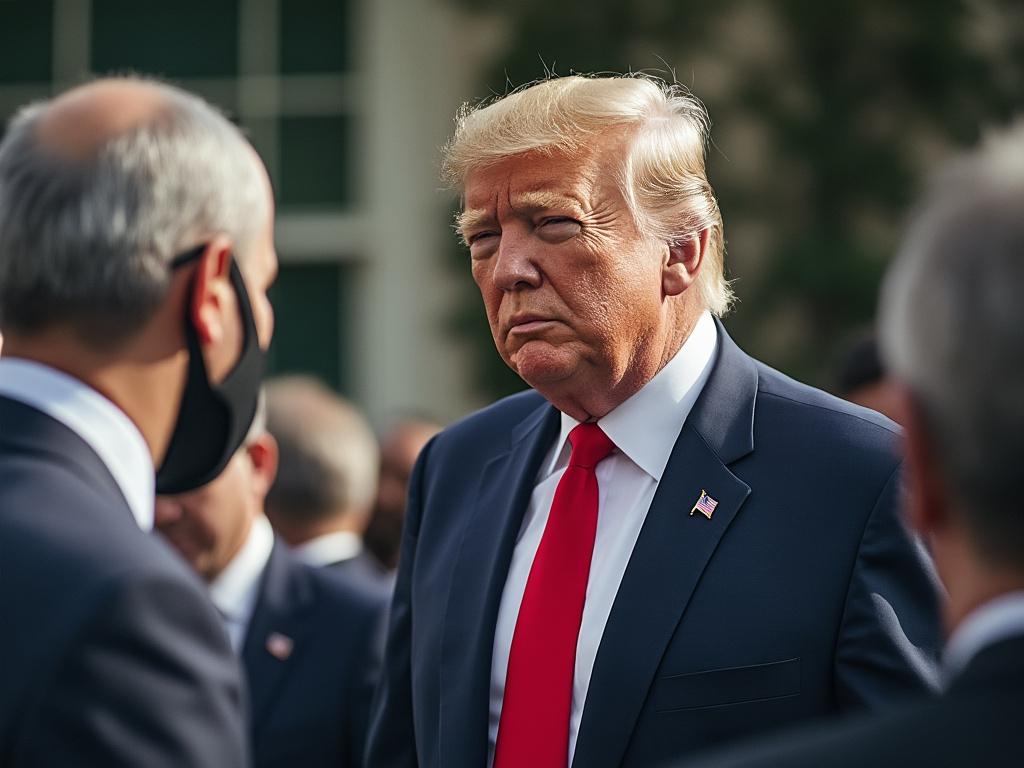
President Trump’s Unprecedented Accumulation of Wealth Amid Controversy
The stark contrast between political office and personal financial gain raises questions about ethics and governance.
Recent reports have highlighted the significant financial gains of former U.S. President Donald Trump during and after his presidency.
Despite typical financial growth associated with presidency, Trump's wealth escalation appears unprecedented in its scale.
Notably, his financial dealings have included collaborations with crypto entrepreneurs and accepting gifts from foreign leaders, raising ethical concerns regarding conflicts of interest.
Trump's financial activities during his tenure have reportedly led to a dramatic increase in his wealth, estimated to have risen by billions within months.
This surge is attributed to various business ventures, including the monetization of his personal brand and engagements that allow clients to purchase time with him directly.
The acceptance of gifts from autocratic leaders has further compounded scrutiny over Trump's financial practices.
Instances of negotiated deals and endorsements intersecting with political power have prompted discussions about transparency and the implications of such transactions on international relations.
Moreover, critics have pointed to the diverging realities faced by public officials who often navigate complex financial landscapes while in office.
Trump's unique approach, including leveraging political influence for personal enrichment, has sparked a broader national and global dialogue regarding the ethical frameworks governing financial conduct for those in power.
As investigations into these financial dealings unfold, Trump's financial rise serves as a case study in the intersection of politics, personal profit, and ethical governance, prompting ongoing discussion about regulatory frameworks that govern the financial activities of public officials.
Despite typical financial growth associated with presidency, Trump's wealth escalation appears unprecedented in its scale.
Notably, his financial dealings have included collaborations with crypto entrepreneurs and accepting gifts from foreign leaders, raising ethical concerns regarding conflicts of interest.
Trump's financial activities during his tenure have reportedly led to a dramatic increase in his wealth, estimated to have risen by billions within months.
This surge is attributed to various business ventures, including the monetization of his personal brand and engagements that allow clients to purchase time with him directly.
The acceptance of gifts from autocratic leaders has further compounded scrutiny over Trump's financial practices.
Instances of negotiated deals and endorsements intersecting with political power have prompted discussions about transparency and the implications of such transactions on international relations.
Moreover, critics have pointed to the diverging realities faced by public officials who often navigate complex financial landscapes while in office.
Trump's unique approach, including leveraging political influence for personal enrichment, has sparked a broader national and global dialogue regarding the ethical frameworks governing financial conduct for those in power.
As investigations into these financial dealings unfold, Trump's financial rise serves as a case study in the intersection of politics, personal profit, and ethical governance, prompting ongoing discussion about regulatory frameworks that govern the financial activities of public officials.
Translation:
Translated by AI
AI Disclaimer: An advanced artificial intelligence (AI) system generated the content of this page on its own. This innovative technology conducts extensive research from a variety of reliable sources, performs rigorous fact-checking and verification, cleans up and balances biased or manipulated content, and presents a minimal factual summary that is just enough yet essential for you to function as an informed and educated citizen. Please keep in mind, however, that this system is an evolving technology, and as a result, the article may contain accidental inaccuracies or errors. We urge you to help us improve our site by reporting any inaccuracies you find using the "Contact Us" link at the bottom of this page. Your helpful feedback helps us improve our system and deliver more precise content. When you find an article of interest here, please look for the full and extensive coverage of this topic in traditional news sources, as they are written by professional journalists that we try to support, not replace. We appreciate your understanding and assistance.










